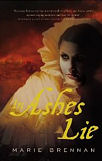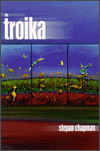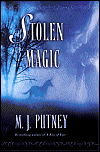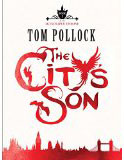
In Ashes Lie, by Marie Brennan
Book Review by SJ Higbee
The year is 1666. The King and Parliament vie for power, fighting one another with politics and armies alike. Below, the faerie court has enemies of its own. The old ways are breaking down and no one knows what will rise in their place.
But now a greater threat has come, one that could destroy everything. In the house of a sleeping baker, a spark leaps free of the oven -- and ignites a blaze that will burn London to the ground. While the humans struggle to halt the conflagration that is devouring the city street by street, the fae pit themselves against a less tangible foe: the spirit of the fire itself, powerful enough to annihilate everything in its path.
Mortal and fae will have to lay aside the differences that divide them, and fight together for the survival of London itself...
As anyone who has more than a nodding acquaintance of English history can see, this book isn't a straight sequel. Despite some of the same characters, there is a jump from the time of Elizabeth I's reign between 1588/1590 and the timespan of In Ashes Lie, which hops between 1639 and 1666. One thing you can't fault Brennan for is her ambition. Using any historical setting requires a degree of research and knowledge before putting word processor to paper -- and even then it can all go horribly wrong. To swing between two major, disparate events throughout the first half of a novel as the setting for your action is brave to the point of being recklessly daft. I'd love to report that Brennan pulled it off. But sadly, I don't think she does.
For a start, the big threat facing the faerie at the beginning cannot get our blood racing too much -- for the simple reason that throughout that narrative arc, we keep getting yanked forward to the start of the Great Fire of London. So immediately, the reader realises that whatever is facing our plucky crew -- they are going to get through it in 1639, because there they are in 1666 confronted with this big old fire... I have to say, I found the juxtaposition of the two story arcs annoying and distracting.
This brings me onto my next point. I don't think I'm giving too much away when I reveal that the first of these deals with the unsuccessful reign of Charles I, ending in his execution in 1649. Once again, in Brennan's world, this event is strongly influenced by what is happening in the faerie court. However, the series of political crises surrounding the relationship between Charles and Parliament is quite a complicated story in its own right. My personal knowledge of this period allowed me to pick my way through the admirable amount of historical detail included, here. But I did wonder how readers wholly ignorant of this period would cope and felt that maybe the pace of the novel floundered at times, which added to the lack of narrative tension.
All in all, getting through the first half of the book wasn't exactly a struggle -- but it came perilously close. Which is a real shame, because if any readers did give up at this point, they missed a cracking (and crackling) second half that really did have me at the edge of my seat and wholly made up for the rather creaky start.
The concept of having the Great Fire become a powerful dragon is a lovely notion -- and the power struggle between the faerie courts that endangers London is an excellent idea. I did feel that some of the main protagonists were not so sharply depicted in this book, mostly because of its overly complicated structure. However, despite its evident flaws, this book still managed to be a stimulating, enjoyable read with some excellent ideas and memorable scenes, especially when battling the Great Fire. I recommend it -- and if you get initially bogged down, grit your teeth. The rest is worth it, I promise...
|
Click here to buy In Ashes Lie, by Marie Brennan on Amazon
|
In Ashes Lie, by Marie Brennan on Amazon

| More Books You Might Like |
| Comments on In Ashes Lie, by Marie Brennan |
| There are no comments on this book. |




